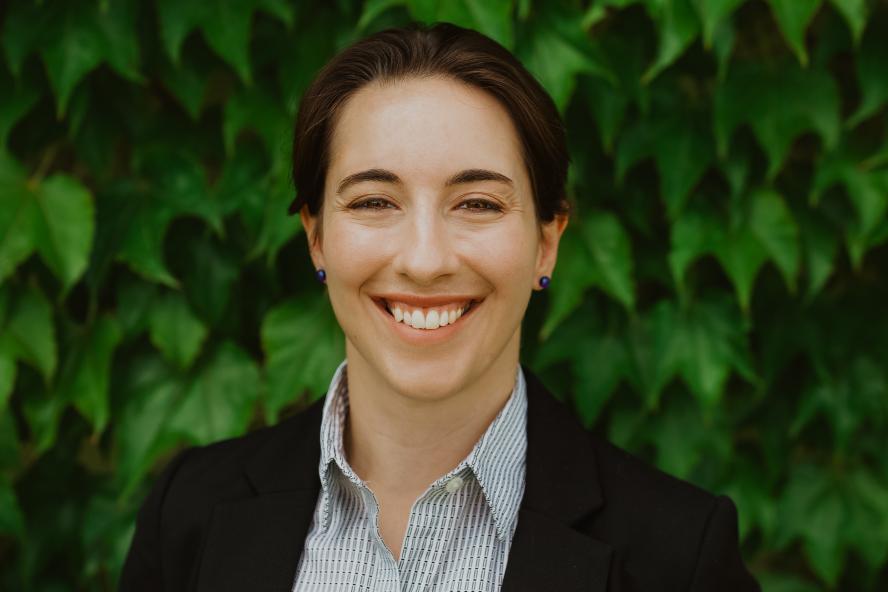-

Hear from Monica Toft, Academic Dean
Learn how Monica Toft, Academic Dean, is shaping the study of global affairs and diplomacy at Fletcher.
Hear from Prof. Toft -

Explore Fletcher academics in action
Fletcher Features offers insights, innovation, stories and expertise by scholars.
Get global insights -
Get application tips right from the source
Learn tips, tricks, and behind-the-scenes insights on applying to Fletcher from our admissions counselors.
Hear from Admissions -

Research that the world is talking about
Stay up to date on the latest research, innovation, and thought leadership from our newsroom.
Stay informed -
Meet Fletcherites and their stories
Get to know our vibrant community through news stories highlighting faculty, students, and alumni.
Meet Fletcherites -

Forge your future after Fletcher
Watch to see how Fletcher prepares global thinkers for success across industries.
See the impact -

Global insights and expertise, on demand.
Need a global affairs expert for a timely and insightful take? Fletcher faculty are available for media inquiries.
Get in Touch
Fresh Insights on Irregular Warfare
PhD student Laura Jones brings Air Force expertise to proxy warfare research at Fletcher

Laura Jones knows what it’s like to be in the zone. As a PhD student, podcast host, and researcher, she dives deep into investigations of irregular warfare. Yet, she’s also taken the concept of “the zone” to the next level: flying special operations aircraft in the Air Force.
Third-generation Air Force, Jones grew up a self-described “weird little kid who wanted to fly airplanes.” After graduating from the Air Force Academy, she went straight to pilot training and subsequently served as an instructor pilot. In special operations, she was stationed both in the US and Japan.
As if flying planes and teaching weren’t enough, Jones also took to research. Responding to an Air Force call for ideas in 2016, she submitted a proposal to investigate misinformation. Her proposal was accepted, and Jones helped oversee the research, which was conducted by the RAND Corporation.
“Coming out of the 2016 election, I was curious about social media’s role and how that was affecting members of the Air Force. What can the Air Force do about that?” said Jones. “All of a sudden, I found myself in charge of a 750,000-dollar team. I got to see the research done, provide inputs as the proposal author, and see that research through its process to a five-volume report.”
Jones has always worked astride theory and practice. For the last two and a half years, she’s been a host of the Irregular Warfare Podcast, a joint effort between West Point’s Modern War Institute and the Empirical Studies of Conflict Project at Princeton. Seeking to bridge gaps between scholarship, practice, and policy, the podcast holds conversations between an academic and a practitioner or policymaker. Not only can this shed new light on problems, but it also serves to maintain a core of expertise on irregular warfare history and offer analysis into the future.
“The broader initiative looks at how we can maintain the expertise and irregular warfare tactics with the downturn of the global war on terrorism. We’ve seen this shift to great power competition or strategic power competition, and there’s fear in the currently serving irregular warfare and special operations community that we’re going to lose a lot of that expertise,” said Jones.
The podcast has featured conversations like one between Nelly Lahoud, author of The Bin Laden Papers, and General David Petraeus. Chris Blattman, an economist and political scientist who wrote the book Why We Fight: The Roots of War and the Path to Peace, spoke with Teny Gross, who runs a nonprofit in Chicago that undertakes peacebuilding initiatives between gangs in Chicago’s South Side.
“To bring on a gang specialist and someone who tries to build peace between street gangs gave us a really interesting look into how violence from the street level to the state level shares certain connections and similarities,” said Jones.
Recognizing Jones’s aptitude for and love of research, her senior sponsor at RAND encouraged her to think about PhD programs. This led her to the Fletcher School, where Jones is active-duty and a full-time student in her second year. Building off of her work with the Irregular Warfare Initiative, she has been researching proxy warfare, and in the spirit of the podcast’s ethos, at Fletcher she reaches across the aisle and to understand problems from different points of view.
“A lot of the reason why the Air Force is interested in having officers with a PhD is not so that we can go and teach; it’s that it gives us a different analytical mindset,” Jones said. “It gives us different tools to analyze problems and formulate solutions. I’ve been here three semesters, and already I’ve begun applying the building blocks of an academic framework to military problem sets.”
Beyond her coursework and research, Jones has been an active part of the Fletcher community. She appreciates every chance to connect with the PhD cohort and learn from their diverse perspectives and interests. And when she’s not busy with her schoolwork, Jones helps with another high intensity activity on campus; she coaches Tufts’ women’s rugby team.
“Being able to offer mentorship, a little bit of leadership, and some rugby knowledge to a very highly motivated group of players has been rewarding,” said Jones. “I’ve really enjoyed coaching and integrating into university life.”
Read more about Fletcher’s PhD programs.

